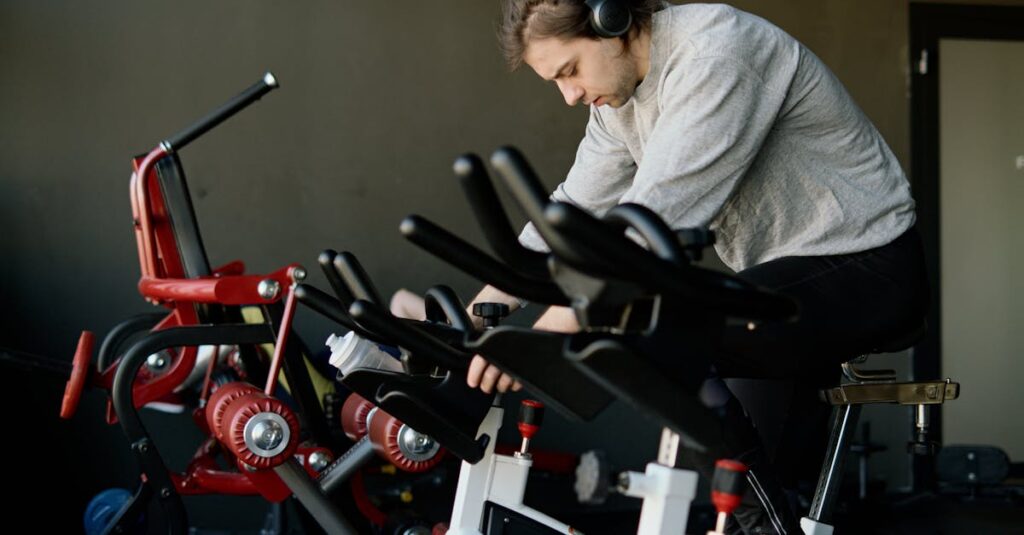Picture this: you’re struggling to focus during an important meeting when your mind drifts to yesterday’s run. Suddenly, you notice your thoughts are clearer, your memory sharper. This isn’t just in your head—within 24 hours of exercise, your brain literally rewires itself, creating new neural pathways that enhance cognitive function by up to 30%.
The Remarkable Reality: Your Brain on Exercise
When you lace up those running shoes or hit the weights, you’re not just building muscle—you’re constructing a more powerful brain. Recent neuroscience research reveals that exercise triggers one of the most profound biological transformations your brain can undergo: neuroplasticity. This is your brain’s ability to reorganize, form new neural connections, and essentially rewire itself throughout your lifetime.
Think of neuroplasticity as your brain’s renovation project. Physical exercise enhances neuronal activity and connectivity, thereby promoting brain plasticity through the modulation of neural networks and the facilitation of information transfer. Every time you exercise, you’re literally rewiring the control center of your body.
The Science Behind the Magic
The mechanism behind exercise-induced brain changes centers around a powerful protein called Brain-Derived Neurotrophic Factor (BDNF). BDNF is a growth factor categorized under the neurotrophin family widely expressed in the brain and throughout the rest of the central nervous system. Scientists often call BDNF “Miracle-Gro for the brain” because of its remarkable ability to promote the growth of new brain cells.
Here’s where it gets fascinating: certain types of physical exercise have been shown to markedly (threefold) increase BDNF synthesis in the human brain, a phenomenon which is partly responsible for exercise-induced neurogenesis and improvements in cognitive function. This threefold increase isn’t just impressive—it’s transformative.
Study #1: The Neurogenesis Breakthrough
Researchers from the University of Toronto, Canada, and Kyushu University, Japan, have found that increased neuron formation and the subsequent rewiring of neural circuits in the hippocampus through exercise or genetic manipulation helps mice forget traumatic or drug-associated memories. Published in Molecular Psychiatry, this groundbreaking study showed that exercise literally grows new brain cells that can override harmful memories and addictive patterns.
Study #2: The BDNF Connection
A comprehensive study published in eLife revealed the exact mechanism by which exercise enhances brain function. Exercise induces the accumulation of a ketone body (D-β-hydroxybutyrate or DBHB) in the hippocampus, where it serves both as an energy source and an inhibitor of class I histone deacetylases (HDACs) to specifically induce BDNF expression. This study provides the molecular blueprint for how your workout literally rewires your brain at the genetic level.
Study #3: The Cognitive Enhancement Evidence
Moderate-intensity exercise can help improve your thinking and memory in just six months, according to Harvard Medical School research. The study found that regular aerobic exercise increases the size of the hippocampus—your brain’s memory center—while improving executive functions like planning, working memory, and problem-solving.
The Practical Impact on Your Daily Life
This brain rewiring translates into real-world benefits that affect every aspect of your life:
Enhanced Memory and Learning: Exercise-induced increases in BDNF signaling are associated with improved cognitive function, improved mood, and improved memory. You’ll find it easier to remember names, learn new skills, and retain information.
Stress Resilience: The new neural pathways created by exercise help your brain better manage stress and anxiety. Exercise can increase cortico-spinal excitability and have a positive impact on functional connectivity, gray matter density, and white matter microstructure in the motor area.
Mental Clarity: Acute exercise (i.e., a single bout of exercise) has been shown to transiently improve a number of cognitive functions, including attention, working memory, problem-solving, and decision-making for up to 2 hours post-workout.
Your Action Plan: Rewiring Your Brain Today

1. Start with the “Minimum Effective Dose”
Begin with just 20-30 minutes of moderate-intensity exercise, 3 times per week. The U.S. Department of Health and Human Services recommends getting at least 150 minutes of moderate-intensity cardio exercises (such as walking, dancing, swimming, or cycling) per week and a minimum of two days of strength training exercises.
2. Choose Brain-Boosting Activities
Not all exercise is created equal for brain benefits. Research shows aerobic exercise provides the most significant neuroplastic changes. Try:
- Brisk walking or jogging
- Swimming
- Cycling
- Dancing (combines cardio with coordination)
3. Time It Right
Acute exercise has been shown to transiently improve a number of cognitive functions for 1-2 hours afterward. Schedule important mental tasks after your workout to capitalize on this cognitive enhancement window.
4. Add Resistance Training
Studies demonstrate that brief, intense resistance training can positively affect neural oscillations and brain plasticity, resulting in improved cognitive performance and synaptic plasticity. Include 2-3 strength training sessions weekly.
5. Stay Consistent
The brain rewiring process requires consistency. New neurons develop slowly in the aging brain, but sustained voluntary exercise promotes dendritic growth, spine formation and neuronal integration. Think of consistency as compound interest for your brain.
Try This Today
Here’s your immediate action step: Take a 10-minute walk right now. Whether it’s around your neighborhood, up and down stairs, or even marching in place, this brief bout of activity will begin the neuroplastic process. Pay attention to how you feel mentally when you return—that’s your brain beginning to rewire itself.
Your brain is remarkably adaptable, constantly evolving based on how you use it. Exercise is the most powerful tool you have to direct that evolution. Every step, every rep, every drop of sweat is literally reshaping your brain into a more powerful, resilient version of itself.
The Bottom Line
Exercise doesn’t just change your body—it rewires your brain at the molecular level, creating new neural pathways that enhance memory, improve focus, and build resilience against stress and mental decline.
Tomorrow’s Focus: Start Small, Win Big: The Psychology Behind Micro-Goals—discover how tiny, achievable targets can trigger massive psychological shifts that compound into life-changing transformations.
🏃 Move your body, lift your mood.

Leave a Reply